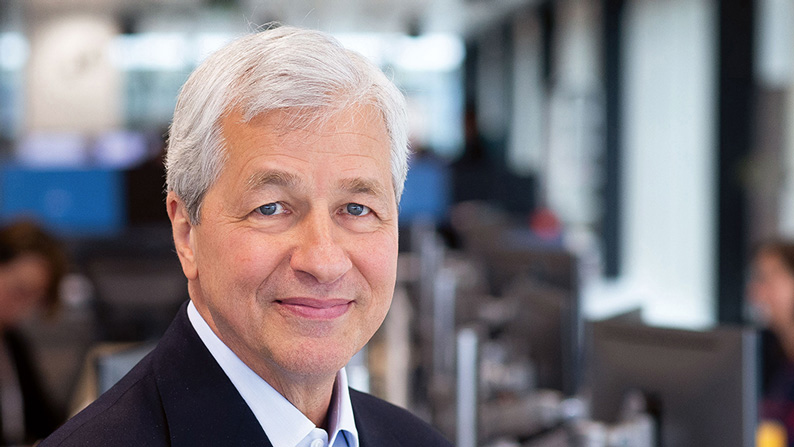Jamie Dimon
Chairman and CEO, JPMorgan Chase
We live in an increasingly complex world where companies, governments, unions and special interest groups vie for time, attention and favorable circumstances for their respective institutions. While it is a constitutional right to petition our government, and many organizations legitimately fight for the interests of their constituents, we all may have become too self-interested. I fear that this self-interest is part of what is destroying the glue that holds our society together. We all share a collective responsibility to improve our country.
As a general matter, we, as citizens, should support policies that are good for our country even if they may not be good for us individually. For too long, too many have fought to use regulation and legislation to further their interests without appropriate regard for the needs of the country. CEOs can and should get involved—particularly when they or their companies can uniquely help design policies that are good for America. At JPMorgan Chase, we believe the best way to scale programs that we have seen work in cities, states and countries around the globe is to develop actionable public policies that allow more people to benefit from economic growth.
Companies can aggressively work to improve society. They can take positions on public policy that they think are good for the country. And they can decide, with proper policies and regulatory oversight, with whom and how they will do business. However, this does get complex. What companies cannot do is abridge the law of the land or abrogate the rights of voters and their representatives to set the law of the land. There are circumstances in which JPMorgan Chase is called upon to do things and/or set policies that should have been set by the federal government—in effect, these are decisions that the voter must decide. We work very hard to try to stay on the right side of all these issues. In any event, things have changed. In the past, boards and advisors to boards advised company CEOs to keep their head down and stay out of the line of fire. Now the opposite may be true. If companies and CEOs do not get involved in public policy issues, making progress on all these problems may be more difficult.
None of our current issues is exclusively owned by Democrats or Republicans. To the contrary, it is clear that partisan politics is stopping collaborative policy from being implemented, particularly at the federal level. This is not some special economic malaise we are in. This is about our society. We are unwilling to compromise. We are unwilling or unable to create good policy based on deep analytics. And our government is unable to reorganize and keep pace in the new world. Plain and simple, this is a collective failure to put the needs of society ahead of our personal, parochial and partisan interests. If we do not fix these problems, America’s moral, economic and military dominance may cease to exist.
America is still the most prosperous nation the world has ever seen. We are blessed with the natural gifts of land; all the food, water and energy we need; the Atlantic and Pacific oceans as natural borders; and wonderful neighbors in Canada and Mexico. And we are blessed with the extraordinary gifts from our Founding Fathers, which are still unequaled: freedom of speech, freedom of religion, freedom of enterprise, and the promise of equality and opportunity. At the end of the day, we are all Americans and we must put our differences aside to have a constructive dialogue around how we can leverage these gifts and improve the future for all of our citizens. It is a moral responsibility.

